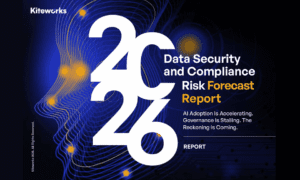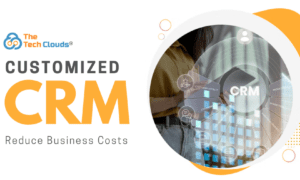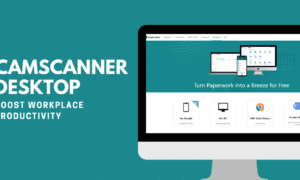With today’s fast-paced corporate environment, having the appropriate tools and systems in place can be crucial. Software for enterprise resource planning (ERP) is one such essential tool. Accounting, finance, supply chain management, and human resources are just a few of the business operations that an ERP system is intended to combine and streamline. It might be difficult to select the best ERP software in UAE because there are so many options on the market. We’ll go over five crucial pointers in this post to assist you in navigating the selection process and locating the ideal ERP solution for your company.
1. Define Your Business Requirements
The first step in the process of choosing ERP software is to define your business requirements. It’s a crucial phase that guarantees you pick a solution that fits your specific pain spots and blends in flawlessly with your operations. Begin by thoroughly evaluating all of your departments’ present business procedures. Determine which areas are generating redundancies, bottlenecks, or inefficiencies. This can involve entering data by hand, not having real-time access to operations, or having trouble producing reliable reports.
Interact with workers at all levels, from front-line personnel to managers and executives, to learn about their unique needs and daily struggles. After you have a thorough understanding of your present procedures, plan forward and see your future objectives and expansion strategies. Think about how your business might change in the upcoming years, and whether you want to broaden your products, enter new markets, or introduce new product lines.
Using this proactive strategy will assist you in choosing an ERP system that will expand with your company. Include important stakeholders in the requirements gathering process from several departments. This kind of cross-functional cooperation guarantees that you have a complete set of criteria that meet the various needs that your company has. The supply chain team might concentrate on inventory control and procurement procedures, whilst the finance team might give priority to strong financial management and reporting capabilities.
2. Evaluate Industry-Specific Solutions
Assessing ERP solutions tailored to your industry is an essential first step in determining which one is best for your company. Even if generic ERP systems come with a lot of functions, they might not be able to handle the particular difficulties and complexities that your sector presents. You can gain from a more thorough grasp of industry best practices and a more efficient implementation process by taking into account industry-tailored solutions.
Every industry has its own unique rules, conventions, and ways of doing things. For example, an ERP system in the healthcare sector needs to handle complicated billing and coding procedures and adhere to stringent data protection and security laws like HIPAA. Similar to this, an ERP system should effectively manage job costing, resource allocation, and project management in the construction sector.
These subtleties are taken into consideration when designing industry-specific ERP systems, which guarantee that the program is ready to go and is tailored to your industry’s particular needs. This can cut down on the requirement for a great deal of customization, which is sometimes expensive and time-consuming. Furthermore, pre-built templates, processes, and reports that follow industry best practices are frequently included with industry-specific solutions, allowing you to get started right away and maximize your operations.
3. Consider Scalability and Growth Potential
Your ERP system should be flexible enough to grow and change with your company. It’s critical to take the solution’s potential for long-term growth into account when assessing your options for ERP software.
As your company grows, look for an ERP system that can manage higher data volumes, more users, and integration with additional modules or technologies. Furthermore, take into account the vendor’s plan for upcoming upgrades and additions to make sure the ERP software will still be able to accommodate your evolving needs over time.
In addition to managing expansion, scalability also refers to the ERP system’s ability to sustain your company through times of volatility or change. A scalable ERP solution can adjust and offer the flexibility you need to be competitive and agile, whether you’re restructuring your operations, launching new product lines, or entering new markets.
4. Prioritize User-Friendliness and Training Support
User involvement and adoption are critical components of an ERP implementation’s success. Your staff may become frustrated, resistant, and eventually unable to fully profit from the ERP system if they believe the software to be confusing and challenging to use.
Consider the user interface (UI) and overall user experience (UX) carefully when weighing your options for ERP software. Seek for solutions that provide workflows that are customized and in line with your company procedures, as well as dashboards that are easy to understand and comprehend. An ERP system that is easy to use can boost productivity right away and drastically lower the learning curve.
Take into account the ERP vendor’s training and support offerings as well. Thorough training resources may assist guarantee a seamless transition and provide your staff the tools they need to fully utilize the new program. These materials may include videos, documents, and interactive workshops.
5. Evaluate Integration Capabilities and Data Security
Your ERP system must interact with other programs and apps that you use now or may require in the future in order to function properly in the linked business environment of today. With this integration, data flow is streamlined, tedious data entry is removed, and a thorough understanding of your company’s activities is given.
Assess the degree of integration that possible ERP solutions can offer, taking into account both native integrations and the application programming interfaces (APIs) that can be used to integrate with bespoke or external applications. This will guarantee that other vital systems, like e-commerce platforms, business intelligence (BI) tools, and customer relationship management (CRM) software, can connect with and exchange data with your ERP system.
When choosing an ERP system, data security should also come first. Seek for systems with strong security features like access limits, encryption, and frequent security upgrades. Verify the ERP vendor’s adherence to industry-accepted security guidelines and track record of safeguarding confidential company information.
Conclusion
Choosing the best ERP software for your company is a difficult process that calls for serious thought and a deep comprehension of the particular requirements of your business. You’ll be well-equipped to handle the selection process and make an informed choice that supports your company’s objectives and positions you for long-term success if you heed these five pieces of advice.
Read More From Techbullion



































